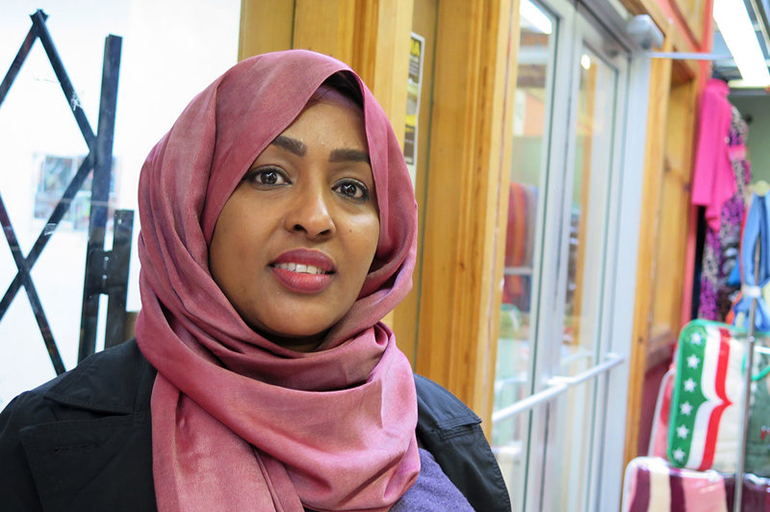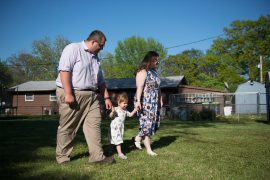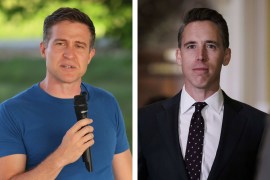Health officials in Minnesota are scrambling to contain a measles outbreak that has sickened primarily Somali-American children. Officials have identified 34 cases as of Wednesday, and they’re worried there will be more.
In Minnesota, the vast majority of children under age 2 get vaccinated against measles. But state health officials said most Somali-American 2-year-olds have not had the vaccine, about 6 out of 10. As the outbreak spreads, that statistic worries health officials, including Michael Osterholm, the director of the University of Minnesota’s Center for Infectious Disease Research and Policy.
“It is a highly concentrated number of unvaccinated people,” he said. “It is a potential kind of gas-and-match situation.”
Measles is a highly contagious respiratory disease that causes a rash and fever. It can be deadly, but the federal Centers for Disease Control and Prevention says two doses of vaccine are about 97 percent effective at heading off the disease.
The Minnesota Department of Health said the outbreak began in Hennepin County, home to Minneapolis and the heart of the nation’s Somali-American community.
The hub for that population is the Cedar-Riverside neighborhood, adjacent to downtown Minneapolis. There are numerous Somali businesses, including more than a dozen jammed open-air-style into a worn-looking building called the Riverside Mall.
Sprawling from stall to stall are brightly colored clothes and other textiles, along with small home furnishings. Most of the Somali-Americans shopping here recently wanted nothing to do with a reporter’s questions. But Khadra Abdulle offered thoughts.
“I heard it, but I haven’t seen it. I don’t know anybody who has that problem right now,” she said.
She was quick to name the fear that’s working against the measles vaccine among Somali-Americans. “They believe it causes autism,” Abdulle said.
Somali community leaders are in lockstep with the Minnesota Department of Health, trying to knock down the pseudoscience behind the myth that vaccines can lead to autism. But others are not, even as the outbreak spreads.
A weekend meeting in Minneapolis organized by anti-vaccine groups attracted dozens of Somali-Americans. Some shouted down physicians, including pediatrician Stacene Maroushek, who showed up to try to convince them vaccinations are critical to their community.
“We know if there’s less than a certain rate of vaccine, the virus is much more likely to spread,” she said. “That’s a scientific fact.”
Kristen Ehresmann, the infectious-disease division director at the Minnesota Department of Health, described the Minnesota measles outbreak as a “public health nightmare” — a lot of unvaccinated people living in densely populated neighborhoods, mixed with a tremendously contagious disease.
Ehresmann said she’s beyond frustrated with forces working against efforts to contain the outbreak: “I’ll be honest. It makes me very angry.”
But Ehresmann said the desire to get the truth out is mobilizing public health officials.
“We’ve had people on Somali TV, Somali radio. We’ve participated in chatrooms. The commissioner met with imams to talk to them about how we can work with the faith community to do outreach,” she said.
In 2000, the U.S. declared it had eliminated measles from the country because of a strong vaccination program. So, measles is no longer native to the U.S. But as vaccination rates have eroded in some areas, it can spread quickly if a sick traveler brings it in.
In 2014, there were 667 cases in the U.S., including a large outbreak among Amish communities in Ohio. In 2015, there were 188 cases, including some linked to California’s Disneyland amusement park. Vaccination is critical to keep people from contracting the virus if they are exposed to it.
Almost 30 years ago, measles sickened 460 people in Minnesota and three children died in that outbreak. University of Minnesota’s Osterholm served as the state epidemiologist at the time, and he said those deaths still haunt him. He’s worried it could happen again.
“I think we could surely see a major increase in the number of cases beyond what we have now,” he said. “With that comes the increasing likelihood someone will die.”
This story is part of a partnership that includes Minnesota Public Radio, NPR and Kaiser Health News.








